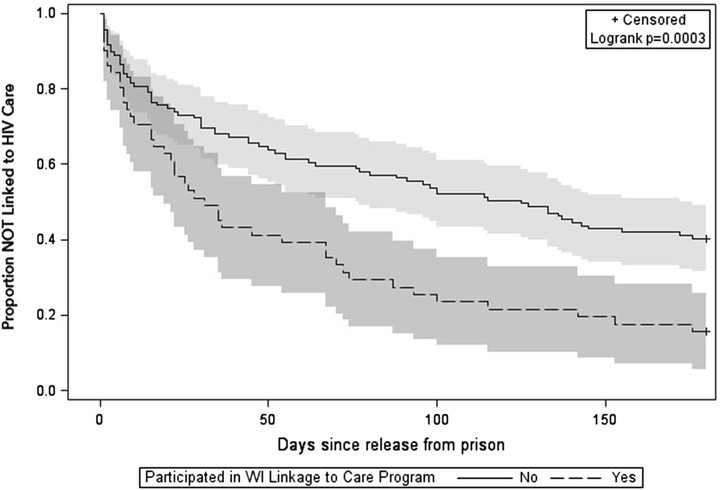Effect of Patient Navigation on Transitions of HIV Care After Release from Prison: A Retrospective Cohort Study

Abstract
Antiretroviral therapy is successfully administered to people living with HIV while they are incarcerated in most US prison systems, but interruptions in treatment are common after people are released. We undertook an observational cohort study designed to examine the clinical and psychosocial factors that influence linkage to HIV care and viral suppression after release from a single state prison system. In this report we describe baseline characteristics and 6-month post-incarceration HIV care outcomes for 170 individuals in Wisconsin. Overall, 114 (67%) individuals were linked to outpatient HIV care within 180 days of release from prison, and of these, 90 (79%) were observed to have HIV viral suppression when evaluated in the community. The strongest predictor of linkage to care in this study was participation in a patient navigation program: Those who received patient navigation were linked to care 84% of the time, compared to 60% of the individuals who received only standard release planning (adjusted OR 3.69, 95% CI 1.24, 10.96; P < 0.01). Findings from this study demonstrate that building and maintaining intensive patient navigation programs that support individuals releasing from prison is beneficial for improving transitions in HIV care.